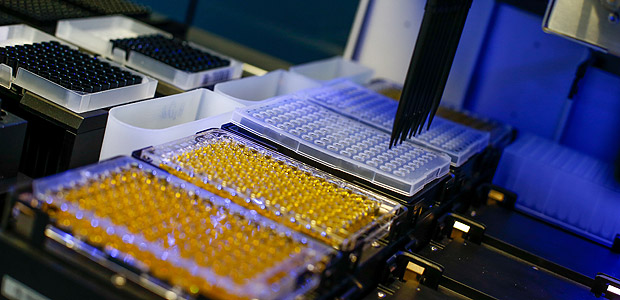Latest Photo Galleries
Brazilian Markets
17h38 Bovespa |
+1,50% | 126.526 |
16h43 Gold |
0,00% | 117 |
17h00 Dollar |
-0,93% | 5,1156 |
16h30 Euro |
+0,49% | 2,65250 |
ADVERTISING
Embrapa Reaches Agreement for Transgenic Sugar Cane
03/15/2018 - 11h20
Advertising
MARCELO TOLEDO
FROM RIBEIRÃO PRETO, STATE OF SÃO PAULO
On Thursday the 15th, Embrapa Agroenergia Corporation will sign a four-year partnership agreement for the production of a new variety of transgenic sugar cane that is resistant to borers, the crop's greatest pest, and to glyphosate, which is the most widely used herbicide in the sector.
Although the agreement is being signed now, the project got under way last November and the expectation is that in four nears the new variety will be available for commercialization. Varieties that are resistant to the borer aren't new, but the difference with this cane variety is the combination of the two modes of action that increases protection against the borer while offering resistance to the herbicide.
The borer (Diatraea saccharalis) is responsible for losses of nearly R$ 5 billion (US$ 1.53 billion) annually to the sector, through reduction of agricultural productivity in the industry and the quality of the sugar produced, in addition to the increased costs for insecticides.
| Pedro Ladeira/Folhapress | ||
 |
||
| Embrapa Agroenergia laboratory |
According to Hugo Molinari, a researcher from Embrapa Agronenergia and leader of the project, the reason for including resistance to glyphosate is to allow for a reduction in the herbicide's total application, reducing production and labor costs in the field.
The first field tests will start in two years and should last for another two years, according to Molinari. An additional problem of using herbicides is that they can harm the development of the sugar cane and generate residual effects for regrowth.
Embrapa's proposal came out after an announcement in 2017 of the approval for commercial use from CTNBio (National Technical Commission for Biosecurity) and is the first genetically modified sugar cane variety in the world. It was developed by CTC (Canaveira Technology Center).
Translated by LLOYD HARDER



